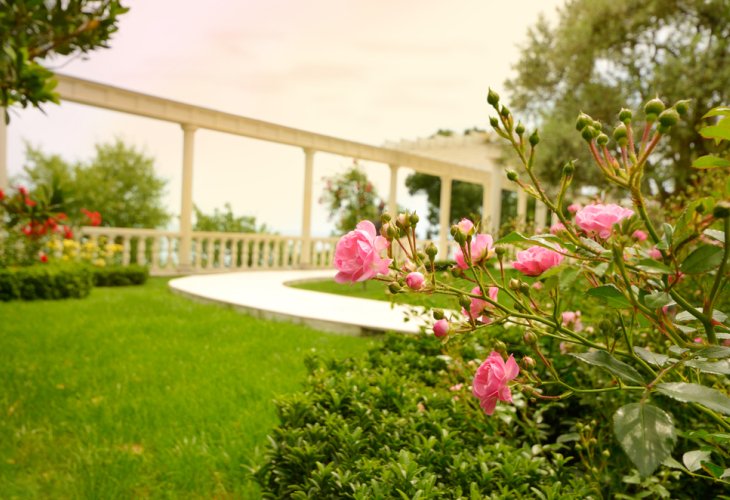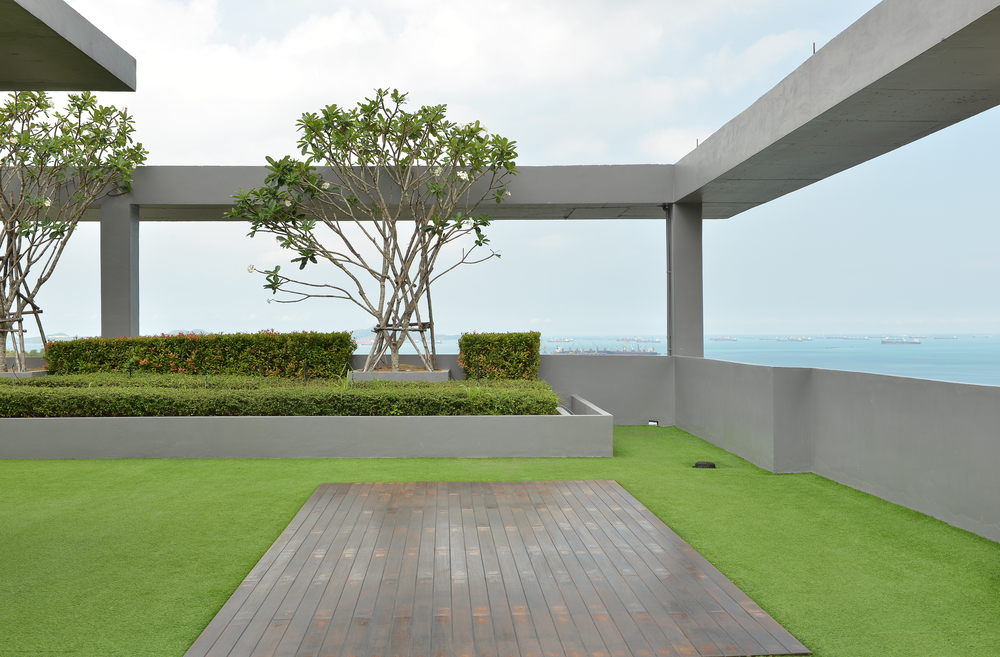Jewish Law
Shemittah: Holiness Down to the Smallest Flowerpot
A comprehensive guide to observance of this special mitzvah
 (Photo: shutterstock)
(Photo: shutterstock)“A certain student came [before Rabbi Abbahu] and said to him: What is the reason for the mitzvah of Shemittah?
“He replied: The Holy One, Blessed be He, said to the Jewish People: Sow for six [years] and withhold [from sowing during the] seventh, so that you will know that the land is Mine.”
Talmud Sanhedrin 39a
Shabbat for the Land
Every seven years, the Land of Israel rests. This Sabbatical year is known as Shemittah, and during it, virtually all work on Jewish-owned land in Eretz Yisrael is forbidden.
Over the past few decades, more and more farmers have dedicated themselves to observing this mitzvah, despite the significant challenges it poses. But what about those of us who aren’t farmers? Perhaps we own a holiday home within the borders of the Land of Israel. In fact, even if the only soil in Eretz Yisrael you own is inside a potted plant, the laws of Shemittah are still relevant to you!
Whose Land?
The prohibition of working the land in the Shemittah year applies to land owned by individuals, partners (such as in kibbutzim), central and local government — and also to ownerless land.
It also applies to the communal gardens belonging to apartment buildings, where dozens of people may share ownership of land where the laws of Shemittah must be observed.
If a Torah-observant person lives in a building where the majority of apartment owners do not intend to observe the laws of Shemittah, he may not simply ignore the situation. If his efforts to gently persuade the other owners to obey the Torah fail, there are several things he should do:
- He should tell the building’s maintenance committee that the maintenance fees he pays each month should be considered as going toward the costs of electricity, indoor cleaning, etc. and not toward forbidden gardening.
- He should make a public declaration (before at least three people, who could be family members or friends etc.) that he renounces his ownership of his share of the building’s grounds.
Which Land?
Shemittah applies within the Torah’s boundaries of Eretz Yisrael, which do not correspond to the borders of the present-day State of Israel.
Shemittah applies only to Jewish-owned land.
Land that is “under cover” — that is, beneath a roof or canopy, such as a greenhouse, is usually not considered to be “land” for the purposes of Shemittah.
Rabbi Yisrael Yaakov Fischer ztz”l (obm), one of the great halachic authorities of the previous generation, noted that fruit grown in greenhouses lacks a certain sweetness that is usually derived from exposure to sunlight, and that this is additional reason to consider such plants as not being subject to Shemittah restrictions.
The general practice is to consider greenhouse produce as not subject to the laws of Shemittah provided various conditions are met, such as having thick plastic sheeting cover the floor entirely, a full canopy overhead, and more. Due to the complexity of this issue one should only purchase greenhouse produce with reliable kosher certification.
 (Photo: shutterstock)
(Photo: shutterstock)Detached from the Land
Hydroponics
Crops planted in water with no soil presence are not subject to the laws of Shemittah. Therefore, one may “plant” an avocado pit in water during the Shemittah year.
Potted plants
These are somewhat more complex, as there are various types: those that are planted in perforated containers (and the like), and those that are in sealed containers.
A plant pot is considered perforated if:
- It has even a millimeter-size hole in its base or its side
- The pot is made of any type of earthenware such as clay
- The “pot” is a simple plastic bag
A plant pot is considered non-perforated if:
- The pot is made of glass, wood, thick plastic, or metal
- It contains no holes at all
- The pot is perforated but a barrier made of glass, wood, rigid plastic, or metal is placed between it and the ground (on an upper floor only)
Regardless of the type of pot, any plant placed on the ground floor of a building is considered connected to the ground and is subject to the laws of Shemittah. This applies even if there is tiled flooring or carpet etc. beneath the pot.
With regard to plant pots on higher floors, one should consult a rabbi.
Hanging pots:
- If perforated (see above), they are considered connected to the ground and capable of receiving nourishment from the earth — therefore, they are subject to Shemittah restrictions.
- If unperforated, the plant is considered separated from the ground and Shemittah laws do not apply unless the leaves, petals etc. extend beyond the sides of the pot, in which case the Shemittah restrictions fully apply.
Plants on balconies or roofs:
A plant in any type of pot which is situated under the sky and not under any kind of roof or canopy is subject to Shemittah restrictions. This applies to open balconies and also window ledges.
Some rabbinic authorities consider roof gardens to be detached from the ground; if someone has full or partial ownership of a roof garden, a rabbi should be consulted.
Your Share of Holiness
Even people who own no land in Eretz Yisrael can participate in observing the special laws of Shemittah, by taking care to only buy agricultural produce that was planted and harvested according to Torah laws. One must exercise caution not only in the Shemittah year but also in the year following, as certain plants that grow to maturity in the eighth year but were planted (in a forbidden manner) during the Shemittah year remain either forbidden or subject to kedushat shevi’it — the sanctity of the Sabbatical year.

